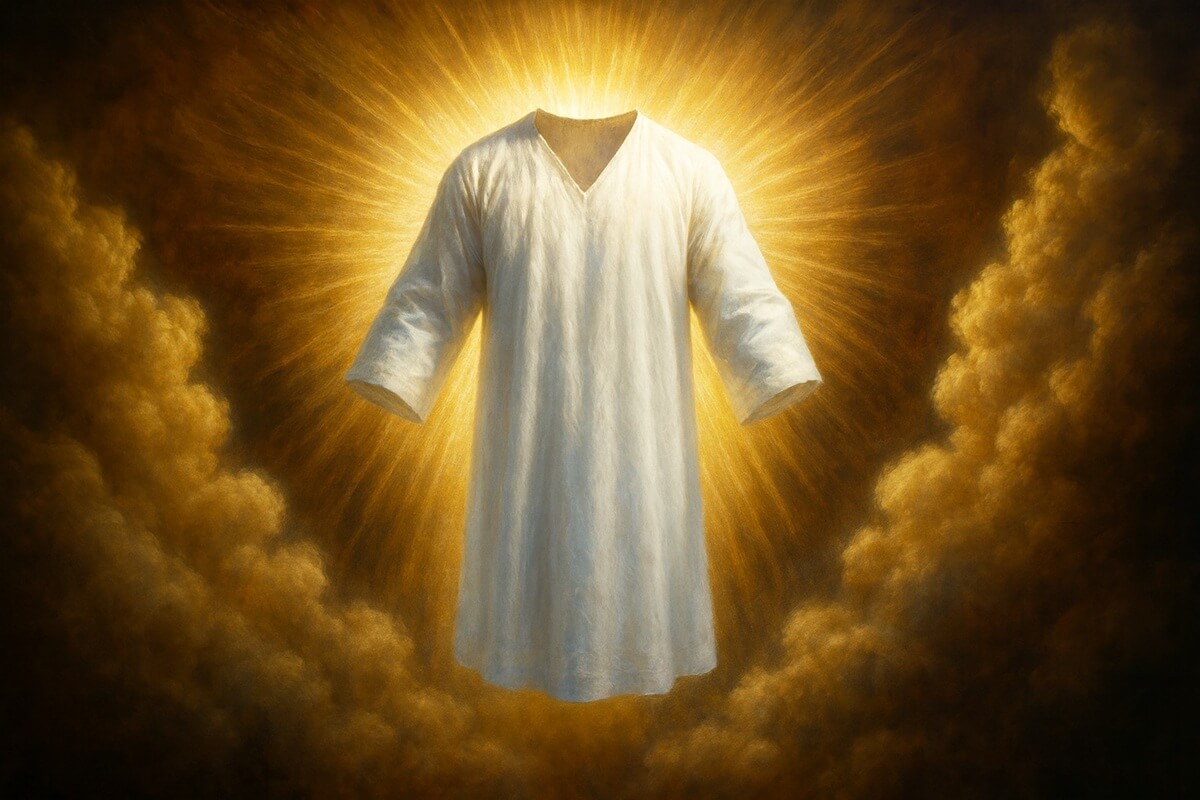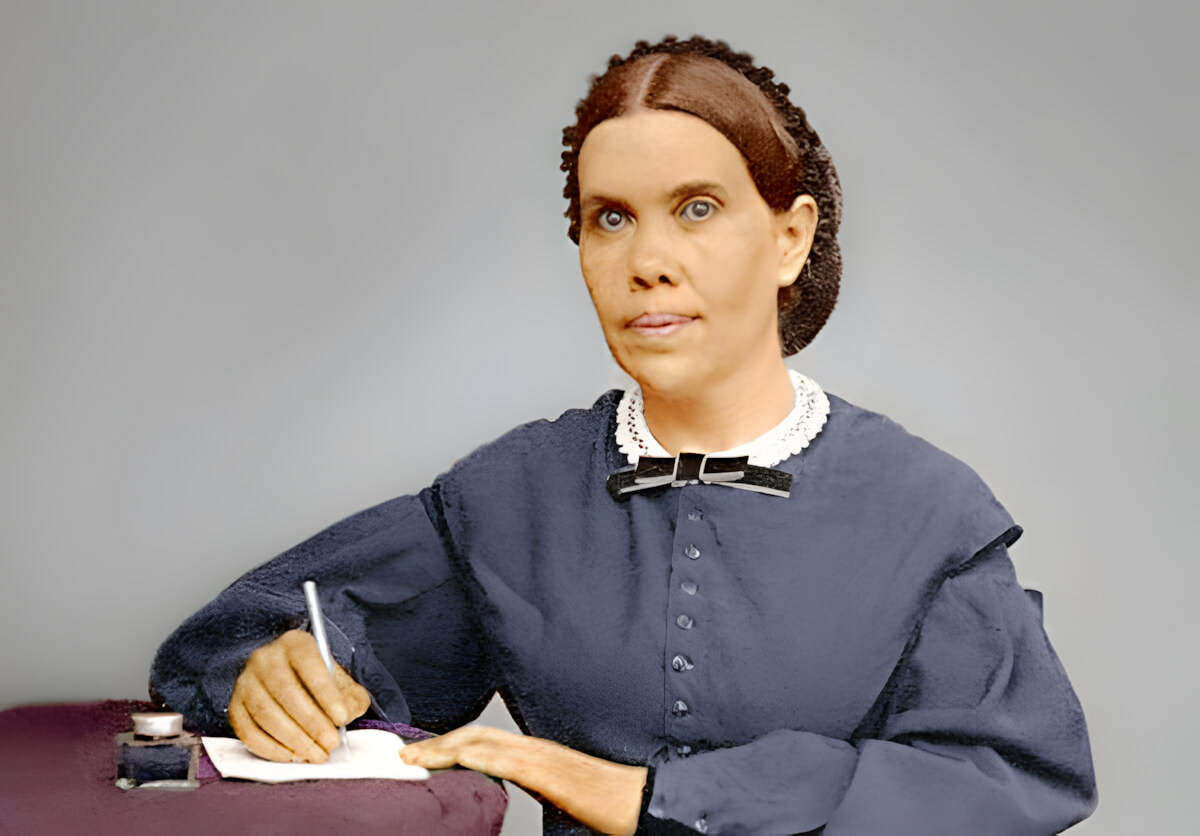Щоденні біблійні уроки

Євангелія від Івана частина 4 (англ.)
Lesson 1. Jesus Before Annas and Caiaphas
Змінити розмір шрифту:
MEMORY VERSE: “He was oppressed, and he was afflicted, yet he opened not his mouth: he is brought as a lamb to the slaughter, and as a sheep before her shearers is dumb, so he openeth not his mouth” (Isaiah 53:7).
Suggested Reading: The Desire of Ages, pp. 698–715.
“Christ did not fail, neither was He discouraged, and His followers are to manifest a faith of the same enduring nature. They are to live as He lived, and work as He worked, because they depend on Him as the great Master Worker.”—The Desire of Ages, p. 679.
1. BEFORE THE JEWISH OFFICIALS Sun, Sep 28
a. After His arrest at Gethsemane, before whom was Jesus violently taken?
John 18:12–14: 12 So the band of soldiers and their captain and the officers of the Jews arrested Jesus and bound him. 13 First they led him to Annas, for he was the father-in-law of Caiaphas, who was high priest that year. 14 It was Caiaphas who had advised the Jews that it would be expedient that one man should die for the people.
Matthew 26:57: Then those who had seized Jesus led him to Caiaphas the high priest, where the scribes and the elders had gathered.
“Annas was the head of the officiating priestly family, and in deference to his age he was recognized by the people as high priest. His counsel was sought and carried out as the voice of God. He must first see Jesus a captive to priestly power. He must be present at the examination of the prisoner, for fear that the less-experienced Caiaphas might fail of securing the object for which they were working. His artifice, cunning, and subtlety must be used on this occasion.”—The Desire of Ages, p. 698.
b. Which disciples followed Christ’s trial from a distance?
John 18:15: Simon Peter followed Jesus, and so did another disciple. Since that disciple was known to the high priest, he entered with Jesus into the courtyard of the high priest,
“After deserting their Master in the garden, two of the disciples had ventured to follow, at a distance, the mob that had Jesus in charge. These disciples were Peter and John. The priests recognized John as a well-known disciple of Jesus, and admitted him to the hall, hoping that as he witnessed the humiliation of his Leader, he would scorn the idea of such a one being the Son of God. John spoke in favor of Peter, and gained an entrance for him also.”—Ibid., p. 710.
2. PETER DENIES JESUS Mon, Sep 29
a. Where did Peter place himself?
John 18:16, 18: 16 but Peter stood outside at the door. So the other disciple, who was known to the high priest, went out and spoke to the servant girl who kept watch at the door, and brought Peter in. 18 Now the servants and officers had made a charcoal fire, because it was cold, and they were standing and warming themselves. Peter also was with them, standing and warming himself.
“Some of the disciples had gained confidence to enter where Jesus was and witness His trial. They expected that He would manifest His divine power, and deliver Himself from the hands of His enemies, and punish them for their cruelty toward Him. . . They could not believe that He would die. They hoped that He would yet rise in power, and with His commanding voice disperse that bloodthirsty multitude, as when He entered the temple and drove out those who were making the house of God a place of merchandise, when they fled before Him as if pursued by a company of armed soldiers. The disciples hoped that Jesus would manifest His power and convince all that He was the King of Israel.”—Early Writings, p. 171.
“In the court a fire had been kindled; for it was the coldest hour of the night, being just before the dawn. A company drew about the fire, and Peter presumptuously took his place with them. He did not wish to be recognized as a disciple of Jesus. By mingling carelessly with the crowd, he hoped to be taken for one of those who had brought Jesus to the hall.”—The Desire of Ages, p. 710.
b. How did Peter deny his Lord?
John 18:17, 25–27: 17 The servant girl at the door said to Peter, “You also are not one of this man’s disciples, are you? ” He said, “I am not. ” 25 Now Simon Peter was standing and warming himself. So they said to him, “You also are not one of his disciples, are you? ” He denied it and said, “I am not. ” 26 One of the servants of the high priest, a relative of the man whose ear Peter had cut off, asked, “Did I not see you in the garden with him? ” 27 Peter again denied it, and at once a rooster crowed.
Luke 22:56–60: 56 Then a servant girl, seeing him as he sat in the light and looking closely at him, said, “This man also was with him. ” 57 But he denied it, saying, “Woman, I do not know him. ” 58 And a little later someone else saw him and said, “You also are one of them. ” But Peter said, “Man, I am not. ” 59 And after an interval of about an hour still another insisted, saying, “Certainly this man also was with him, for he too is a Galilean. ” 60 But Peter said, “Man, I do not know what you are talking about. ” And immediately, while he was still speaking, the rooster crowed.
“Peter followed his Lord after His betrayal. He was anxious to see what would be done with Jesus. But when he was accused of being one of His disciples, fear for his own safety led him to declare that he knew not the man.”—Early Writings, p. 169.
“Peter had not designed that his real character should be known. In assuming an air of indifference he had placed himself on the enemy’s ground, and he became an easy prey to temptation. If he had been called to fight for his Master, he would have been a courageous soldier; but when the finger of scorn was pointed at him, he proved himself a coward. Many who do not shrink from active warfare for their Lord are driven by ridicule to deny their faith. By associating with those whom they should avoid, they place themselves in the way of temptation. They invite the enemy to tempt them, and are led to say and do that of which under other circumstances they would never have been guilty. The disciple of Christ who in our day disguises his faith through dread of suffering or reproach denies his Lord as really as did Peter in the judgment hall.”—The Desire of Ages, p. 712.
3. PETER’S CONVERSION Tue, Sep 30
a. After denying the Master for the third time and hearing the cock crow, what did Peter recall and what did he do?
Matthew 26:75: And Peter remembered the saying of Jesus, “Before the rooster crows, you will deny me three times. ”And he went out and wept bitterly.
Mark 14:72: And immediately the rooster crowed a second time. And Peter remembered how Jesus had said to him, “Before the rooster crows twice, you will deny me three times. ”And he broke down and wept.
“While the degrading oaths were fresh upon Peter’s lips, and the shrill crowing of the cock was still ringing in his ears, the Saviour turned from the frowning judges, and looked full upon His poor disciple. At the same time Peter’s eyes were drawn to his Master. In that gentle countenance he read deep pity and sorrow, but there was no anger there.
“The sight of that pale, suffering face, those quivering lips, that look of compassion and forgiveness, pierced his heart like an arrow. Conscience was aroused. Memory was active. Peter called to mind his promise of a few short hours before that he would go with his Lord to prison and to death. He remembered his grief when the Saviour told him in the upper chamber that he would deny his Lord thrice that same night. Peter had just declared that he knew not Jesus, but he now realized with bitter grief how well his Lord knew him, and how accurately He had read his heart, the falseness of which was unknown even to himself.”—The Desire of Ages, pp. 712, 713.
b. Where did the humiliated disciple go?
Luke 22:62: And he went out and wept bitterly.
What had been the cause of his great sin?
“[Peter] pressed on in solitude and darkness, he knew not and cared not whither. At last he found himself in Gethsemane. The scene of a few hours before came vividly to his mind. The suffering face of his Lord, stained with bloody sweat and convulsed with anguish, rose before him. He remembered with bitter remorse that Jesus had wept and agonized in prayer alone, while those who should have united with Him in that trying hour were sleeping. . . .
“It was in sleeping when Jesus bade him watch and pray that Peter had prepared the way for his great sin. All the disciples, by sleeping in that critical hour, sustained a great loss. Christ knew the fiery ordeal through which they were to pass. He knew how Satan would work to paralyze their senses that they might be unready for the trial. Therefore it was that He gave them warning. Had those hours in the garden been spent in watching and prayer, Peter would not have been left to depend upon his own feeble strength. He would not have denied his Lord.”—Ibid., pp. 713, 714.
4. THE INTERROGATION OF CHRIST Wed, Oct 1
a. What question did Annas direct to Jesus?
John 18:19: 19 The high priest then questioned Jesus about his disciples and his teaching.
“If convicted of sedition, it would secure [Christ’s] condemnation by the Romans. The second charge Annas tried first to establish. He questioned Jesus concerning His disciples and His doctrines, hoping the prisoner would say something that would give him material upon which to work. He thought to draw out some statement to prove that He was seeking to establish a secret society, with the purpose of setting up a new kingdom. Then the priests could deliver Him to the Romans as a disturber of the peace and a creator of insurrection.”—The Desire of Ages, p. 699.
b. Relate the trial of patience that Jesus endured.
John 18:20–23: 20 Jesus answered him, “I have spoken openly to the world. I have always taught in synagogues and in the temple, where all Jews come together. I have said nothing in secret. 21 Why do you ask me? Ask those who have heard me what I said to them; they know what I said. ” 22 When he had said these things, one of the officers standing by struck Jesus with his hand, saying, “Is that how you answer the high priest? ” 23 Jesus answered him, “If what I said is wrong, bear witness about the wrong; but if what I said is right, why do you strike me? ”
Isaiah 53:7: He was oppressed, and he was afflicted, yet he opened not his mouth; like a lamb that is led to the slaughter, and like a sheep that before its shearers is silent, so he opened not his mouth.
“Annas was silenced by the decision of [Jesus’] answer. . . . One of his officers, filled with wrath as he saw Annas silenced, struck Jesus on the face, saying, ‘Answerest Thou the high priest so?’. . . .
“[Christ] spoke no burning words of retaliation. His calm answer came from a heart sinless, patient, and gentle, that would not be provoked. “Christ suffered keenly under abuse and insult. At the hands of the beings whom He had created, and for whom He was making an infinite sacrifice, He received every indignity. And He suffered in proportion to the perfection of His holiness and His hatred of sin. His trial by men who acted as fiends was to Him a perpetual sacrifice. To be surrounded by human beings under the control of Satan was revolting to Him. And He knew that in a moment, by the flashing forth of His divine power, He could lay His cruel tormentors in the dust. This made the trial the harder to bear.
“The Jews were looking for a Messiah to be revealed in outward show. They expected Him, by one flash of overmastering will, to change the current of men’s thoughts, and force from them an acknowledgment of His supremacy. Thus, they believed, He was to secure His own exaltation, and gratify their ambitious hopes. Thus when Christ was treated with contempt, there came to Him a strong temptation to manifest His divine character. By a word, by a look, He could compel His persecutors to confess that He was Lord above kings and rulers, priests and temple. But it was His difficult task to keep to the position He had chosen as one with humanity.”—Ibid., p. 700.
5. CONDEMNED FOR IDENTIFYING HIMSELF Thu, Oct 2
a. Not finding any conclusive evidence to condemn Jesus, what question did Caiaphas put to the Saviour?
Matthew 26:63: But Jesus remained silent. And the high priest said to him, “I adjure you by the living God, tell us if you are the Christ, the Son of God. ”
b. What was Christ’s response to Caiaphas and how was this answer used as supposed evidence against Him?
Matthew 26:64–66: 64 Jesus said to him, “You have said so. But I tell you, from now on you will see the Son of Man seated at the right hand of Power and coming on the clouds of heaven. ” 65 Then the high priest tore his robes and said, “He has uttered blasphemy. What further witnesses do we need? You have now heard his blasphemy. 66 What is your judgment? ” They answered, “He deserves death. ”
“At last, Caiaphas, raising his right hand toward heaven, addressed Jesus in the form of a solemn oath: ‘I adjure Thee by the living God, that Thou tell us whether Thou be the Christ, the Son of God.’
“To this appeal Christ could not remain silent. There was a time to be silent, and a time to speak. He had not spoken until directly questioned. He knew that to answer now would make His death certain. But the appeal was made by the highest acknowledged authority of the nation, and in the name of the Most High. Christ would not fail to show proper respect for the law. More than this, His own relation to the Father was called in question. He must plainly declare His character and mission. Jesus had said to His disciples, ‘Whosoever therefore shall confess Me before men, him will I confess also before My Father which is in heaven.’ Matthew 10:32. Now by His own example He repeated the lesson.
“Every ear was bent to listen, and every eye was fixed on His face as He answered, ‘Thou hast said.’ A heavenly light seemed to illuminate His pale countenance as He added, ‘Nevertheless I say unto you, Hereafter shall ye see the Son of man sitting on the right hand of power, and coming in the clouds of heaven.’ ”—The Desire of Ages, pp. 706, 707.
PERSONAL REVIEW QUESTIONS Fri, Oct 3
1. What temptations should I resist in order to avoid denying my Lord?
2. What sin would I commit by disguising my faith?
3. Do I understand, as fully as Peter did, the meaning of true repentance?
4. Relate the dialogue between Annas and Jesus.
5. What prophecy was included in Christ’s answer to Caiaphas?




